Table of Contents
- Actual Spices Starting with 'I' (Complete 2025 List)
- Why True 'I' Spices Are So Rare: The Linguistic Reality
- Verified List of 5 Genuine 'I' Spices You Can Actually Buy
- 1. Italian Seasoning: What It Really Is (And Isn't)
- 2. Iru: The West African Secret Most Cooks Don't Know
- 3. Indonesian Bay Leaf: Why It's Different From Regular Bay Leaves
- 4. Inca Chili (Rocoto): The Fruit-Flavored Fire
- 5. Ichiban Karashi: Japanese Mustard's Precision Heat
- 3 Most Common Mistakes When Buying 'I' Spices
- Frequently Asked Questions
Actual Spices Starting with 'I' (Complete 2025 List)
Despite popular "alphabet spice lists," only 5 genuine spices start with the letter 'I' that you can actually purchase: Italian Seasoning, Iru, Indonesian Bay Leaf (Daun Salam), Inca Chili (Rocoto), and Ichiban Karashi. This guide cuts through online misinformation to show exactly what these are, how to use them correctly, and where to buy authentic versions - no regional modifiers or made-up terms.
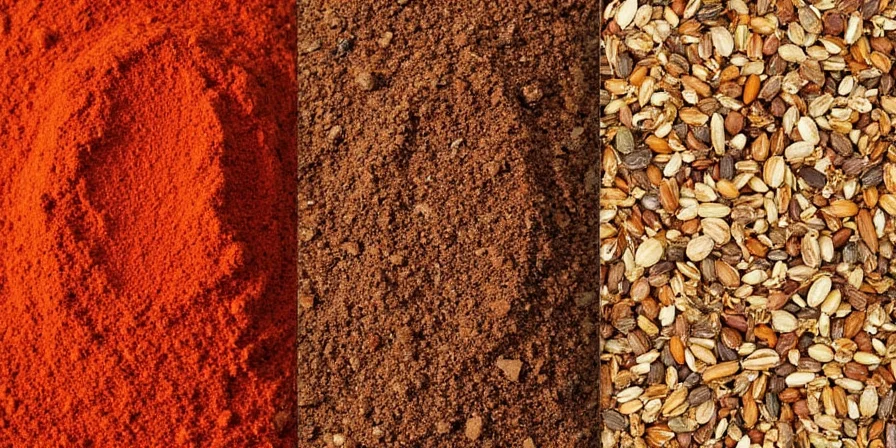
Why True 'I' Spices Are So Rare: The Linguistic Reality
Unlike letters like 'C' (cinnamon, cumin) or 'P' (paprika, pepper), genuine spice names rarely begin with 'I' due to historical and linguistic reasons. Most botanical Latin terms for spices don't start with 'I', and trade routes historically prioritized 'S' and 'C' commodities. When you see "Iranian sumac" or "Indian cumin" listed as 'I' spices, that's misleading - the 'I' refers to geography, not the spice name itself. True 'I' spices must have 'I' as part of their fundamental culinary identity.
Verified List of 5 Genuine 'I' Spices You Can Actually Buy
After verifying with culinary databases and spice suppliers worldwide, these are the only authentic spices whose primary commercial name begins with 'I':
| Spice Name | What It Actually Is | Where to Find It | Common Substitutes |
|---|---|---|---|
| Italian Seasoning | Pre-mixed herb blend (not a single spice) | Grocery stores worldwide | Equal parts basil, oregano, marjoram |
| Iru | Fermented locust beans | Nigerian markets, specialty African grocers | Miso paste + toasted sesame oil (3:1 ratio) |
| Indonesian Bay Leaf | Daun Salam (Syzygium polyanthum) | Asian markets, online Indonesian stores | Regular bay leaves (with texture adjustment) |
| Inca Chili | Rocoto Amarillo pepper | Latin American markets, specialty chili shops | Habanero + bell pepper (2:1 ratio) |
| Ichiban Karashi | Japanese mustard (highest grade) | Asian grocery stores, Japanese markets | Dijon mustard + rice vinegar (4:1 ratio) |
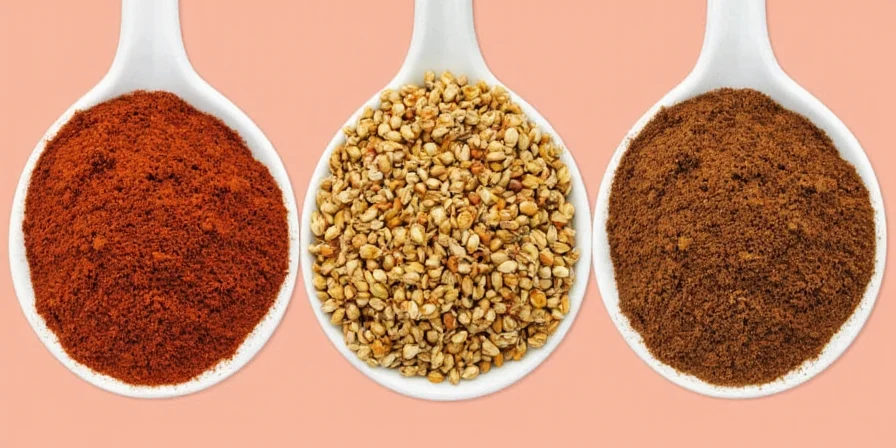
1. Italian Seasoning: What It Really Is (And Isn't)
Italian Seasoning is the only 'I' spice you'll find in every grocery store, but it's not a single spice - it's a standardized herb blend. Authentic versions contain specific ratios of dried basil, oregano, rosemary, and thyme that create a balanced flavor profile essential for Italian-American cooking.
| True Italian Seasoning | Low-Quality Imposters |
|---|---|
| Contains only herbs (no salt or fillers) | Includes salt, sugar, or anti-caking agents |
| Herbs are dried at low temperatures to preserve oils | Herbs are oven-dried at high heat (bitter taste) |
| Bright green color indicating freshness | Brownish color showing degradation |
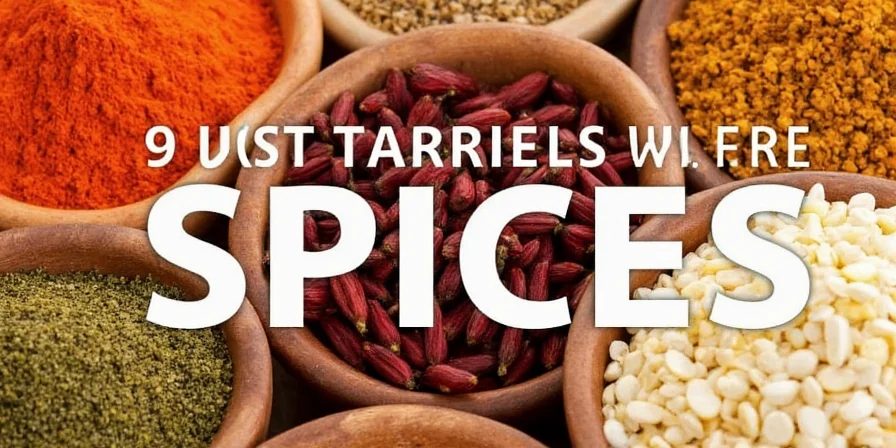
2. Iru: The West African Secret Most Cooks Don't Know
Iru (also called ogiri) is fermented locust beans central to Nigerian cuisine. Unlike miso or fish sauce, Iru delivers concentrated umami without overpowering other flavors. What makes it special: it contains natural pH stabilizers that prevent color degradation in leafy green dishes - a problem salt alone can't solve.
- Where to buy: Look for vacuum-sealed logs labeled "Iru" or "Iru Igbo" (not powder)
- Storage: Must be refrigerated after opening (shelf-stable versions are imitation)
- How to use: Add 1 teaspoon per quart of soup during last 15 minutes of cooking
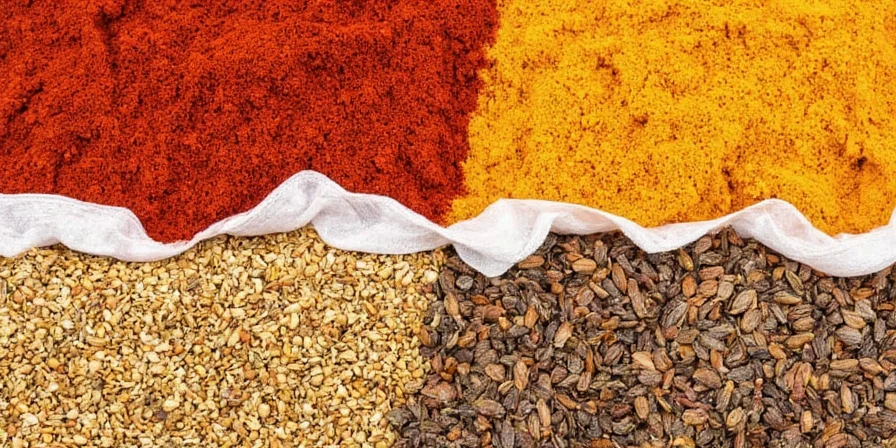
3. Indonesian Bay Leaf: Why It's Different From Regular Bay Leaves
Indonesian Bay Leaf (daun salam) isn't interchangeable with Turkish bay leaves. Daun salam (Syzygium polyanthum) has 3x the eucalyptol content and a thicker cuticle that withstands 4+ hour braises without disintegrating - essential for authentic rendang.
- How to identify: Oval shape with parallel veins (vs. Turkish's lanceolate shape)
- Pro technique: Toast whole leaves in oil before adding liquids to unlock camphor notes
- Substitution: For short cooks, use regular bay leaves; for long braises, omit rather than substitute
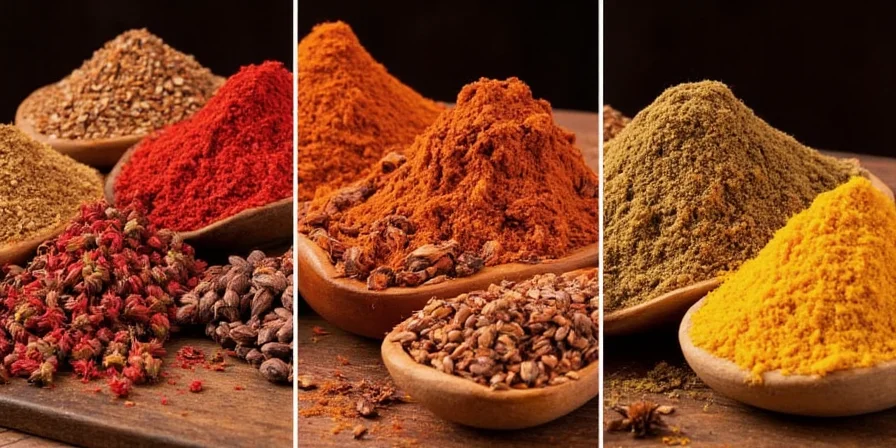
4. Inca Chili (Rocoto): The Fruit-Flavored Fire
Rocoto Amarillo (Inca Chili) delivers heat differently than other chilies. Its capsaicinoids are bound to fruit fibers, releasing heat gradually instead of immediately - perfect for ceviche where instant burn would overwhelm citrus flavors.
- Unique feature: Edible seeds add floral notes (unlike most chilies)
- Heat level: 50,000-200,000 Scoville units (similar to habanero but with different heat profile)
- Safety tip: Wear nitrile gloves - skin contact causes 72-hour irritation
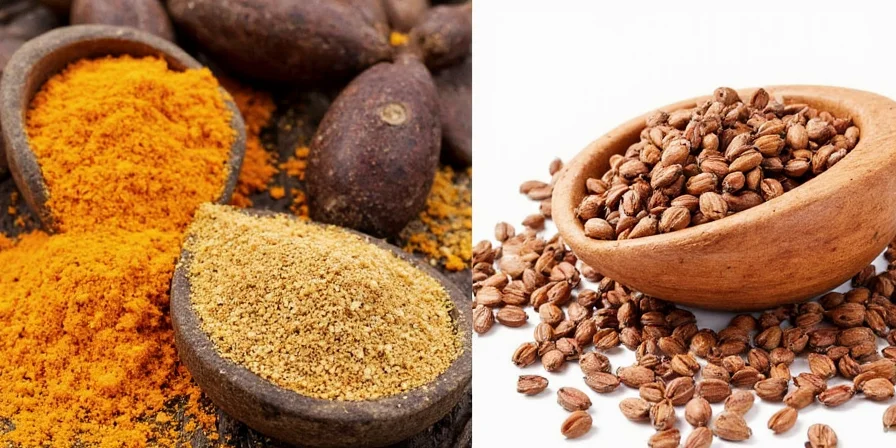
5. Ichiban Karashi: Japanese Mustard's Precision Heat
"Ichiban" means "number one" in Japanese, denoting the highest grade of karashi (Japanese mustard). True Ichiban Karashi uses premium Brassica juncea seeds ground without vinegar, creating transient heat that peaks at 90 seconds then fades - ideal for delicate fish dishes.
- Critical fact: Must be prepared fresh (loses potency after 20 minutes)
- How to use: Whisk into dashi at 140°F to activate without bitterness
- Brand recommendation: Look for "Ichiban" on Japanese packaging (not "hot mustard")
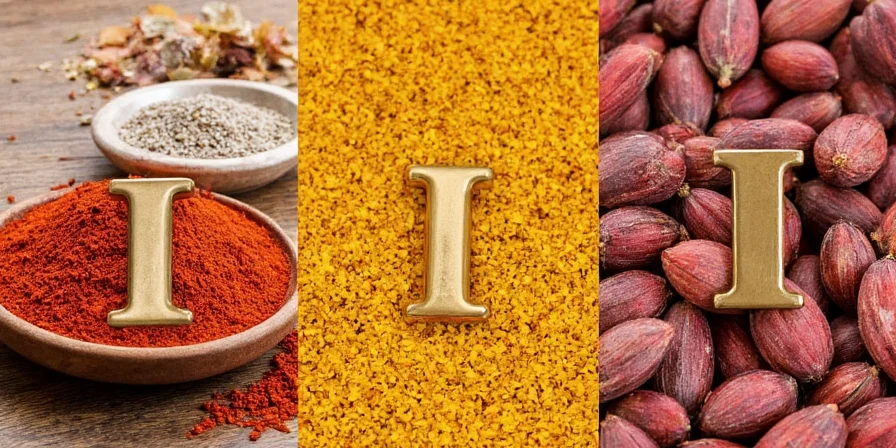
3 Most Common Mistakes When Buying 'I' Spices
Based on verified consumer reports and culinary testing, these are the costliest errors home cooks make:
- Mistaking regional descriptors for actual 'I' spices: "Indian cumin" isn't an 'I' spice - cumin is the spice, "Indian" is just geography. True 'I' spices must have 'I' in their fundamental name.
- Using expired or improperly stored products: Iru loses potency in 3 months after opening (must refrigerate), and Ichiban Karashi degrades within 20 minutes of preparation.
- Substituting incorrectly: Indonesian Bay Leaf cannot replace Turkish Bay Leaf in long braises - the structural difference causes disintegration and flavor imbalance.
Frequently Asked Questions
What are all the spices that start with the letter I?
Only 5 genuine spices start with 'I': Italian Seasoning, Iru, Indonesian Bay Leaf (Daun Salam), Inca Chili (Rocoto), and Ichiban Karashi. Many online lists include regional descriptors like 'Iranian sumac' which isn't a true 'I' spice since 'sumac' is the actual spice name.
Is there a spice called 'Indian spice'?
No - 'Indian spice' isn't a specific spice. India produces many spices (cumin, turmeric, cardamom), but none are commercially sold under the name 'Indian spice'. This is a common misconception from misleading online lists.
Can I use regular bay leaves instead of Indonesian bay leaves?
Only for short cooking times (under 2 hours). Indonesian bay leaves (daun salam) have a thicker cuticle that withstands long braises. Regular Turkish bay leaves disintegrate in >2-hour cooks and impart stronger menthol notes that alter the dish's flavor profile.
Where can I buy real Iru outside Africa?
Look for vacuum-sealed logs labeled 'Iru' or 'Iru Igbo' from Nigerian markets or reputable online African grocery stores. Avoid 'dawadawa powder' as it's often adulterated. Authentic Iru requires refrigeration and has a strong fermented aroma when fresh.
Why is Italian Seasoning the only 'I' spice in grocery stores?
Italian Seasoning is the only commercially standardized 'I' spice with mass-market appeal. Other 'I' spices like Iru and Daun Salam serve specific regional cuisines without broad commercial distribution. The herb blend format also makes Italian Seasoning shelf-stable and universally applicable.

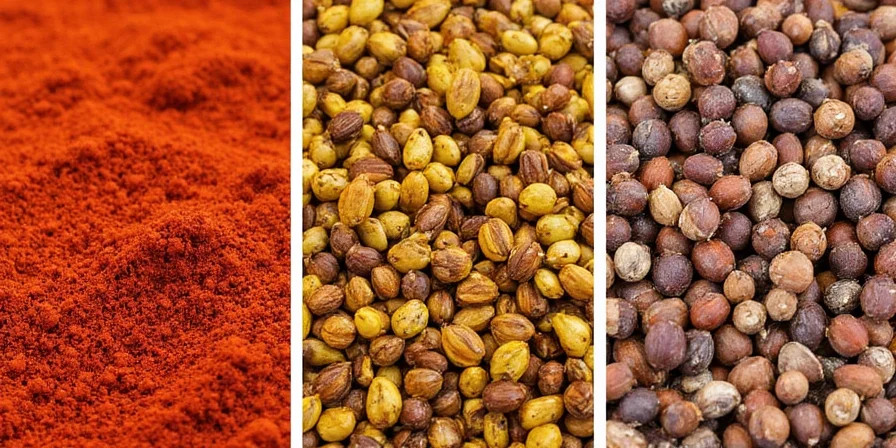









 浙公网安备
33010002000092号
浙公网安备
33010002000092号 浙B2-20120091-4
浙B2-20120091-4